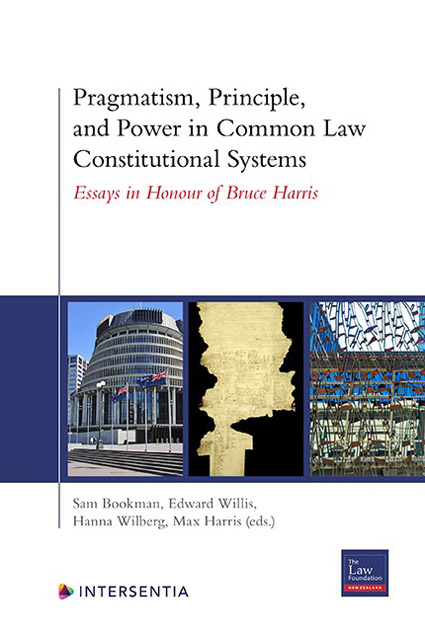 Pragmatism, Principle, and Power in Common Law Constitutional Systems
Pragmatism, Principle, and Power in Common Law Constitutional Systems Book contents
- Frontmatter
- Foreword
- Preface
- Contents
- The Writings of Professor Bruce Harris
- List of Cases
- List of Contributors
- Introduction
- Part I The Nature of Executive Power
- Part II Issues Concerning The Judiciary: The Nature of Judicial (and Executive) Power
- Part III Issues Concerning The Judiciary: Creativity and Pragmatism in Judicial Method
- Part IV Issues Concerning The Judiciary: Judicial Appointment and Accountability
- Part III The Nature of Unwritten Constitutions and Their Future
- Index
Judicial Innovation and the Family
Published online by Cambridge University Press: 19 November 2022
- Frontmatter
- Foreword
- Preface
- Contents
- The Writings of Professor Bruce Harris
- List of Cases
- List of Contributors
- Introduction
- Part I The Nature of Executive Power
- Part II Issues Concerning The Judiciary: The Nature of Judicial (and Executive) Power
- Part III Issues Concerning The Judiciary: Creativity and Pragmatism in Judicial Method
- Part IV Issues Concerning The Judiciary: Judicial Appointment and Accountability
- Part III The Nature of Unwritten Constitutions and Their Future
- Index
Summary
INTRODUCTION
Professor Harris has urged honesty in how we talk about judicial law-making. Judges do make law and, sometimes, they should. The important questions are when and how.
In some cases, Professor Harris suggests courts will need to depart from precedent to update rules in statute or case law for a changing society. He calls this ‘judicial innovation’. Broadly, the judicial innovation can be broken down into two types: (1) innovation to bring the law into step with shared social values; and (2) innovation to advance the rights of a minority, not with standing that it may be against or in advance of the public will.
In recent cases on the meaning of the family, New Zealand courts have embraced the first kind innovation but refused to engage with the second. The refusal is centred on an idea of ‘social policy’. Social policy is rarely defined or expanded upon. It is a label for the kind of rules that go to who we are as a society. Something may be a ‘social policy’ question because it brings up questions of shared traditions, morals or values. It is likely something on which people disagree; it may have implications for other rules and institutions.
The courts’ use of social policy is unprincipled. For one, it is selective. In Quilter v Attorney-General and Re AMM, the Court of Appeal and High Court declined to engage with interpretations of ‘marriage’ for the issue of marriage licence under Marriage Act, or ‘spouse’ for the joint adoption of children, that could open eligibility to couples of the same sex. Those innovations were judged to involve ‘broad social policy’ questions and ‘challenges to the traditional family unit’ that Parliament must weigh.
Yet that same court in Re AMM comfortably adopted a narrower extension to ‘spouses’ eligible for adoption: unmarried (opposite-sex) couples. Following the passage of the legislative amendments for marriage equality in 2013, the Family Court in Re Pierney extended that further to unmarried same-sex couples. Most recently, the High Court has recognised that ‘spouse’ may include separated and divorced couples – it may even extend to couples who have not had a romantic relationship. These latter cases show a remarkable judge-led innovation of a 65-year-old statutory term once understood to be limited to partners in a heterosexual marriage.
- Type
- Chapter
- Information
- Pragmatism, Principle, and Power in Common Law Constitutional SystemsEssays in Honour of Bruce Harris, pp. 109 - 134Publisher: IntersentiaPrint publication year: 2022


